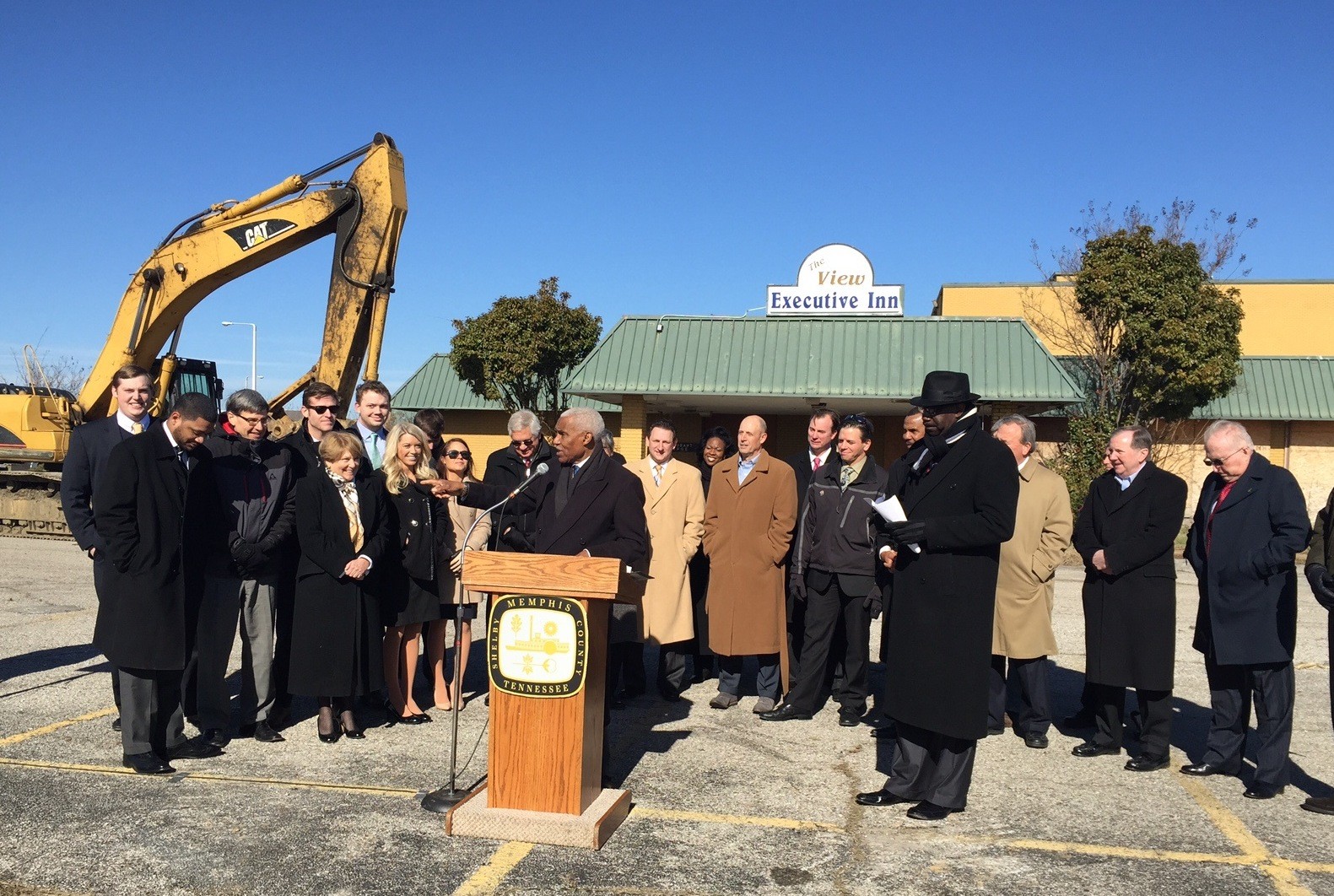
Against the backdrop of a long-vacant, run-down hotel at Airways and Brooks on Friday afternoon, Mayor A C Wharton announced a new partnership between the the city’s law division and the University of Memphis Cecil B. Humphreys School of Law to fight blight across the city.
The Neighborhood Preservation Clinic will offer real-world, hands-on learning experience for law students in issues of property abandonment, neglect, and blight. Students will investigate property ownership and conditions of actual blighted properties all over Memphis. They’ll work with code-enforcement officers, prepare civil lawsuits, and help prosecute neglectful property owners by partnering with the city attorney’s office on cases that go before Judge Larry Potter’s Environmental Court.
The students will spend 10 to 15 hours each week in court and working on cases, and they’ll be participating in weekly classroom sessions focusing on the challenge of fighting blight in Memphis.
“When I was in law school, we learned how to defend property owners and landlords. But we didn’t have anything like we’re doing today,” Wharton told the crowd gathered outside The View Executive Inn.
According to a press release handed out at the conference, “Memphis files more lawsuits against owners of blighted and neglected properties than any other city in the nation.”
Wharton said the new clinic will give U of M law students “real world experience in litigating some of the toughest cases to handle.”
One such tough case has been that of the blighted Executive Inn, where today’s press conference was held. The crumbling structure, covered in graffiti, sits directly across from the new Greyhound station, and it’s been an eyesore for years.
“The worst thing in the world is somebody flying in to Memphis and saying, ‘Are we landing in Berlin or Memphis?'” Wharton said, motioning toward the decaying structure behind him.
The property is encumbered by nearly $600,000 in city and county property taxes, which exceeds its market value. Because of those taxes, plus fines and fees, the property owner was unable to pay for the property’s demolition.
But thanks to a state law that passed in 2014, Potter was able to finally issue a demolition order for the property last week. That new law allows cities a way to address problem properties even when they have uncollectible property taxes. Those taxes on the Executive Inn will now be dismissed, and the city can move forward with demolition, which is being handled in-house. Wharton said it will cost the city about $240,000 to clear the property.
Once cleared, the property will be auctioned, and the new owner will be able to take on the property free and clear of all taxes.